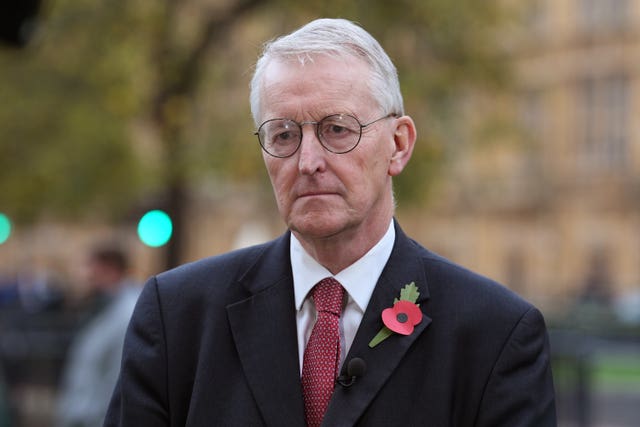NI budget for next year is biggest in history of devolution, Government insists
Stormont finance minister Caoimhe Archibald said while the settlement was encouraging, it was not enough to plug a projected funding gap.

Funding of £18.2 billion for Northern Ireland next year is the largest real-terms settlement to the region in the history of devolution, the Government has said.
The 2025/26 allocation includes an extra £1.5 billion “top up” calculated through the Barnett formula used for distributing money to the devolved nations.
The £1.5 billion includes £1.2 billion for day-to-day resource spending and £270 million for capital projects.
The Executive will also receive an additional £640 million this financial year – £609 million in resource day-to-day funding and around £30 million in capital funding.
The added 2024/25 funding is greater than officials in Belfast had been expecting, as Stormont was anticipating £500 million in additional resource spend and had not been expecting any significant additional capital funds for this year.

Chancellor Rachel Reeves also announced that stalled Government-backed growth deals for two areas in Northern Ireland – Causeway Coast and Glens and Mid South West – will now proceed.
The Government last month placed a controversial pause on future funding commitments to the deals while it carried out a pre-Budget review of spending.
The Budget also saw the Police Service of Northern Ireland receive an additional £6.5 million through the Additional Security Fund for 2025/26 – bringing Government support through the fund to £37.8 million next year.
The Government will also maintain an £8 million annual contribution to the Executive’s programme to tackle the ongoing threat posed by paramilitarism and organised crime.
The Government also provided £730,000 to support schools in Northern Ireland working towards securing integrated status.
Secretary of State for Northern Ireland Hilary Benn said: “This is the biggest real terms settlement for Northern Ireland since devolution.
“The Northern Ireland Executive will get an additional £640 million in Barnett consequentials this year, and an additional £1.5 billion next year.
“This will provide a strong foundation for stability and growth, and sees the UK Government delivering real change for the people of Northern Ireland.”
He added: “This budget is positive news for people across Northern Ireland, encouraging economic growth and enabling the conditions for a brighter future.”
The Barnett formula calculations for this year and next factor in a new funding model deal agreed between the Government and Stormont earlier this year, which means a 24% uplift is applied to any new money allocated to the region in recognition of greater levels of relative need in Northern Ireland compared to England.
Stormont departments are currently overcommitted by £767 million on the resource side of its budget for this financial year – so the additional £609 million will not entirely cover the projected funding gap for 2024/25.
Ahead of the Budget, Stormont finance minister Caoimhe Archibald had already warned fellow ministers to ensure they do not break their departmental budgets this year.
She said any overspend would have “grave consequences”, highlighting that failure to balance the Stormont budget by the end of the financial year would see the Government withdraw a previous offer to write off £559 million worth of debt owed to the Treasury.
The Treasury offer, made by the last government, to set aside the £559 million was conditional on the Executive delivering a balanced budget in 2024/25.
Reacting to the Budget on Wednesday, Ms Archibald said while the allocations were “encouraging” they were still not of a level to resolve Stormont’s funding problems.
“My initial assessment of this budget is that there does appear to be genuine attempts to protect public services and invest in infrastructure, but unfortunately it will not undo the damage caused by the underfunding of our public services,” she said.
“Austerity was never going to be reversed in one budget. The scale of the current pressures are so severe that this will take time and significant further investment to turn the tide.”
She added: “Whilst there are many things which, on a first review, are encouraging, the quantum of money is not sufficient to meet the trajectory of overspend that departments have indicated for this year.
“For the Executive, that means difficult decisions will still have to be made.”
In response to the Budget, the Police Service of Northern Ireland’s Chief Operating Officer, Pamela McCreedy said:
“We welcome today’s announcement that the Police Service is to receive an increase of around £5 million of additional security funding and for the further investment in the executive programme on paramilitarism and organised crime.
“We also note that the Northern Ireland Executive is to receive an additional £640 million and we look forward to working with the Department of Justice for the much-needed additional funding for the Police Service.”





